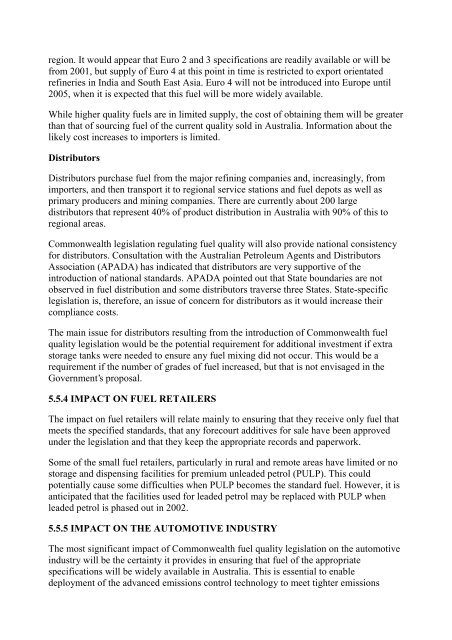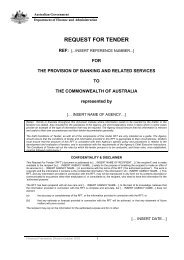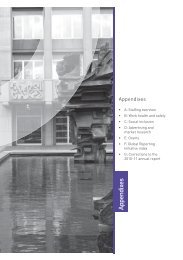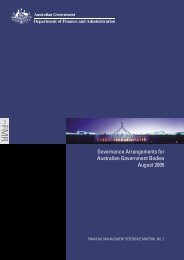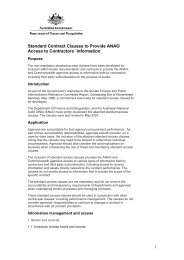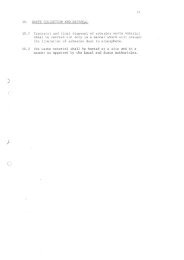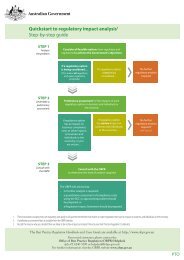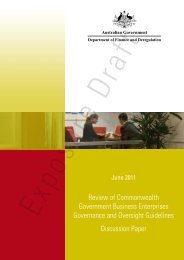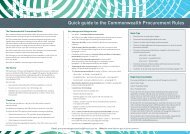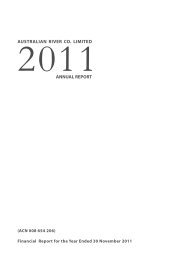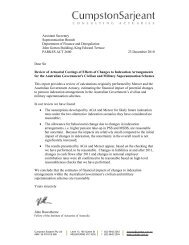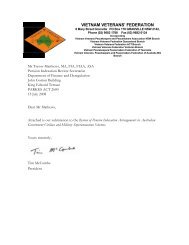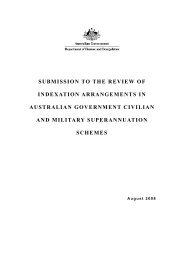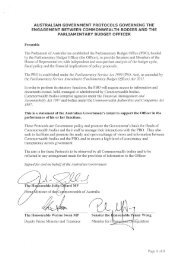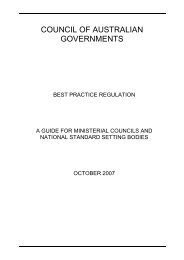National Fuel Quality Standards Regulation Impact Statement 1 ...
National Fuel Quality Standards Regulation Impact Statement 1 ...
National Fuel Quality Standards Regulation Impact Statement 1 ...
You also want an ePaper? Increase the reach of your titles
YUMPU automatically turns print PDFs into web optimized ePapers that Google loves.
egion. It would appear that Euro 2 and 3 specifications are readily available or will be<br />
from 2001, but supply of Euro 4 at this point in time is restricted to export orientated<br />
refineries in India and South East Asia. Euro 4 will not be introduced into Europe until<br />
2005, when it is expected that this fuel will be more widely available.<br />
While higher quality fuels are in limited supply, the cost of obtaining them will be greater<br />
than that of sourcing fuel of the current quality sold in Australia. Information about the<br />
likely cost increases to importers is limited.<br />
Distributors<br />
Distributors purchase fuel from the major refining companies and, increasingly, from<br />
importers, and then transport it to regional service stations and fuel depots as well as<br />
primary producers and mining companies. There are currently about 200 large<br />
distributors that represent 40% of product distribution in Australia with 90% of this to<br />
regional areas.<br />
Commonwealth legislation regulating fuel quality will also provide national consistency<br />
for distributors. Consultation with the Australian Petroleum Agents and Distributors<br />
Association (APADA) has indicated that distributors are very supportive of the<br />
introduction of national standards. APADA pointed out that State boundaries are not<br />
observed in fuel distribution and some distributors traverse three States. State-specific<br />
legislation is, therefore, an issue of concern for distributors as it would increase their<br />
compliance costs.<br />
The main issue for distributors resulting from the introduction of Commonwealth fuel<br />
quality legislation would be the potential requirement for additional investment if extra<br />
storage tanks were needed to ensure any fuel mixing did not occur. This would be a<br />
requirement if the number of grades of fuel increased, but that is not envisaged in the<br />
Government’s proposal.<br />
5.5.4 IMPACT ON FUEL RETAILERS<br />
The impact on fuel retailers will relate mainly to ensuring that they receive only fuel that<br />
meets the specified standards, that any forecourt additives for sale have been approved<br />
under the legislation and that they keep the appropriate records and paperwork.<br />
Some of the small fuel retailers, particularly in rural and remote areas have limited or no<br />
storage and dispensing facilities for premium unleaded petrol (PULP). This could<br />
potentially cause some difficulties when PULP becomes the standard fuel. However, it is<br />
anticipated that the facilities used for leaded petrol may be replaced with PULP when<br />
leaded petrol is phased out in 2002.<br />
5.5.5 IMPACT ON THE AUTOMOTIVE INDUSTRY<br />
The most significant impact of Commonwealth fuel quality legislation on the automotive<br />
industry will be the certainty it provides in ensuring that fuel of the appropriate<br />
specifications will be widely available in Australia. This is essential to enable<br />
deployment of the advanced emissions control technology to meet tighter emissions


